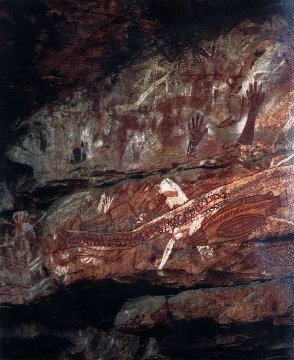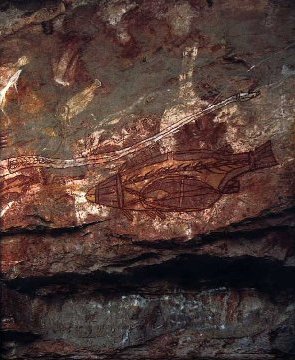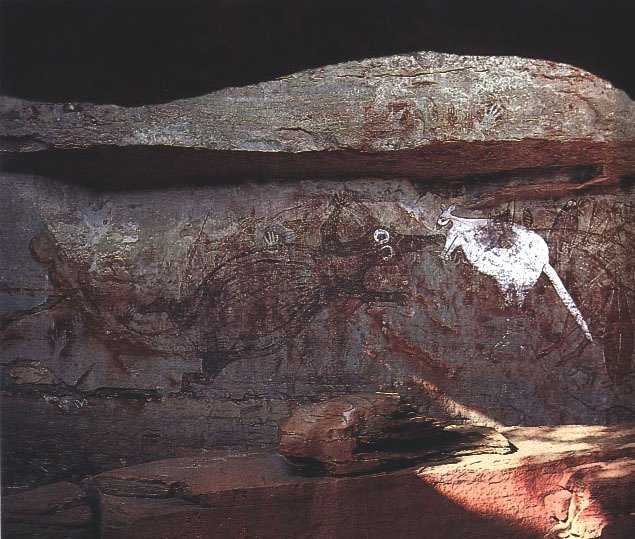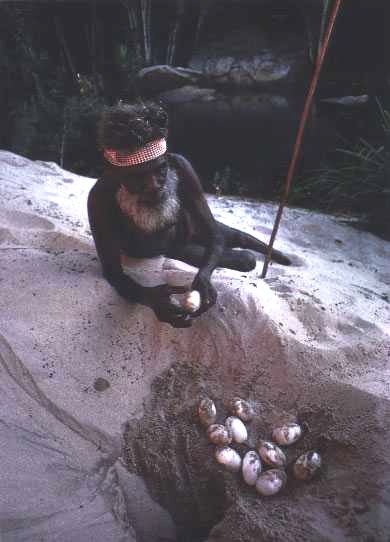451-310 Professional DevelopmentImaging AssignmentRoss King #57621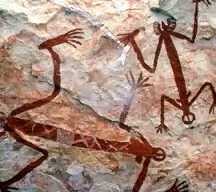
Background :It has come to the attention of our firm that a native title claim may by lodged over part of our land due for development. This land is due for a large communications tower, and so this report details information about one section of our lease, containing various pieces of rock art. Introduction :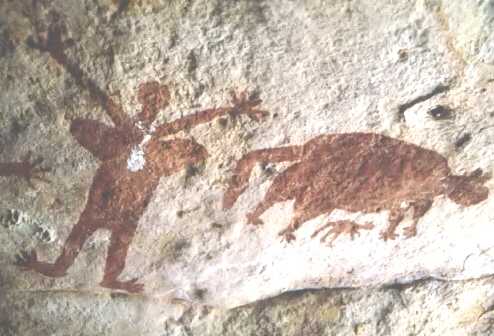
The land in question is under the supervision of the Gagudju people of the Northern Territory. It is located just outside the Kakadu National Park, whose name is derived from the word Gagudju, and is about 10km from the main Gagudju settlement of Cannon Hill. The main focus was about some of the major aboriginal rock art sites in the area, all located on the edge of the Arnhem Land Escarpment and Plateau. The site contains various pieces of art work, mainly concentrated with the hunting of animals, such as crocodiles and their eggs, snakes and barramundi. As we don't wish to upset the Gagudju people, we decided to complete an investigation of the area, to make sure that our tower will not effect the traditional owners and allow us to continue with the project even if a native title claim is lodged over the site. Location :The site is located 235km directly east of the capital of the Northern Territory, Darwin, and 9.06km south-east of the settlement of Cannon Hill. Although Cannon Hill is located within the Kakadu National Park, the site in question is located just outside by about 2km, 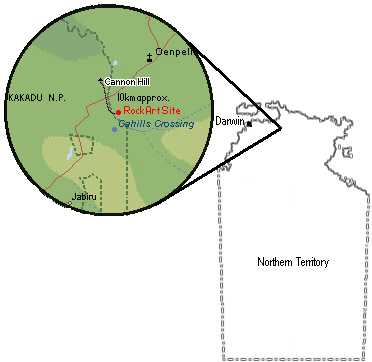 Figure 1, Map of N.T., showing the location of Cannon Hill, and the site in question Figure 1 shows the location of the site within the Northern Territory and in relationship to Darwin. Figure 2 shows the track leading across the main road from Cannon Hill to the site, 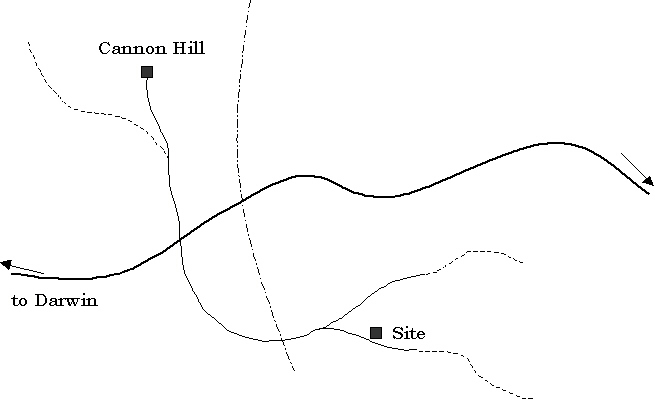 Figure 2, Location map from Cannon Hill to the site
Figure 2, Location map from Cannon Hill to the site
This track is quite treacherous and should only be undertaken in a All-Wheel drive vehicle. As this site is located this close to the Kakadu National Park, there are therefore good road connection into the park, up until the tourist facilities, about 70km from Cannon Hill. Darwin also has an airport, so a flight to Darwin, and then a car ride will give access to the site. Below is a table out lining the distances by air and by car to get to the site from all capital cities, and major towns in the Northern Territory. Table 1, distances by road to Cannon Hill
These values are guides only, and most will be underestimated. Table 2, distances to Darwin by Aeroplane
These figures are also approximate, and the distance from Darwin to the site needs to be added to allow for the entire distance What is thereThe site contains many historical paintings on the cliffs of the Arnhem Land Escarpment and Plateau. These paintings are typically of the local aborigines hunting the local wildlife in the area.
Why this area needs to be protectedThe aboriginal life style is all based on the idea of the Dreamtime, or Dreaming. This is a direct translation of the aboriginal word for it, but Silas Roberts described it as "Aboriginals have a special connection with everything that is natural ... We see thinks natural as part of us. All the things on earth we see as part human". The dreaming is based on the idea that the earth was originally formless, with no land, no light, nothing. Then an old blind women, called Kala, with three children clasped to her breast, rose from the ground. As she wondered around, a sea of water bubbled up behind her. After a while, this water created the island of the Tiwi, now Melville island, and she left the three children there, after declaring that the island should be covered with trees, with animals and spirit children. This was how the world was first created. Light came from a lighting strike which lit two tree branches. These were discovered by Purupu, the son of Kala, and one burning branch was given to his sister Wuriu, and a smaller one to his friend, Japara. Purupu soon married, but Japara soon became her lover, and one day when Purupu�s wife and Japara were off in the bush, Purupu�s son died in the heat of the day. On hearing this Purupu attacked Japara, beating him savagely, so that Japara, with his smaller torch, rose into the sky to become the moon-man with the scars on his face from his fight with Purupu. Wuriu, with her larger torch, rose into the sky to become the sun-woman. So there was a bright light during the day, and less light from the moon during the night. The earth around the site was created by Ginga, the giant ancestral crocodile, who made the rocks, which was be seen in the rocky outcrops shaped like a crocodile�s back. The cliffs which the rock painting are located on was made sacred by Namarkon, the lightning man, which actually forms the edge of the Arnhem land Escarpment and Plateau, and so to the Gagudju still contains the power and energy of the Dreamtime. Conclusion and RecommendationsThe site I was investigating only occupies a very small area on our lease, and so I don�t conceive a problem with locating our tower an acceptable distance away from the site as not to upset the Gagudju people. This would be advantageous as if we are acceptable to the Gagudju people, then even if the native title claim succeeds, then they would not be adverse to our keeping the tower in its currently proposed location. I do not advise an attempt to remove the people or the art work as this will have large personal relations impacts on the company, and as stated before, there is no reason both we and the Gagudju people can not exist in this area together. Recommended Reading on the SubjectBreeden, S. (February, 1988). The First Australians. National Geographic. National Geographic Publishers. USA Mountford, C. P. (1976). Before Time Began, Ledgends of the Dreamtime. Nelson. Australia |
 |
|
 |
